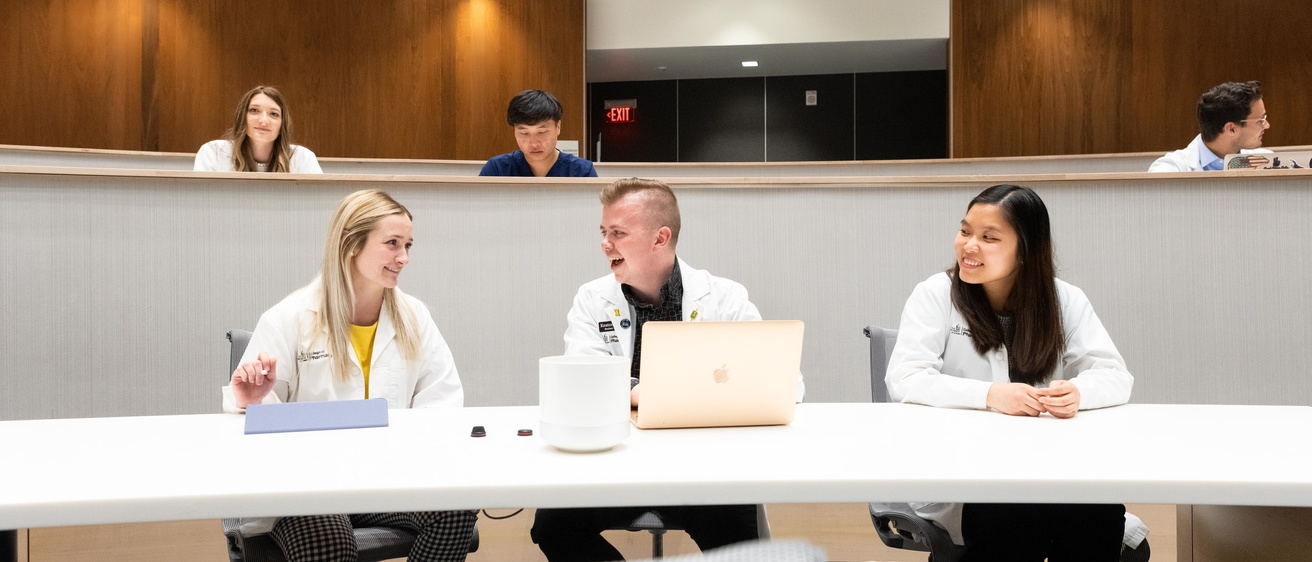At the heart of the University of Iowa College of Pharmacy is its students. That’s why faculty and staff continually assess and make improvements for the benefit of students’ education and future careers.
Recently, that meant making a number of modifications to the Doctor of Pharmacy curriculum.

Associate Dean of Academic Affairs Mary Ray, who leads the college’s curriculum and assessment endeavors, along with the Curriculum Committee, identified areas that could benefit from strengthening based on assessment data such as stakeholder survey responses, student and faculty listening posts, and standardized exam performance.
It was felt that modifications – some simple and some more elaborate – would be helpful in strengthening student knowledge and application of content in complex patients, such as those in acute care practice settings.
“We also are always concerned about student workload and associated wellbeing."
“We also are always concerned about student workload and associated wellbeing,” Ray said, adding that minor changes have been implemented over the past several years, such as moving the dermatology/sensory integrated pharmacotherapy (IP) course from the second to the first professional year to better prepare the students for the rigor of year two. “We felt that it was now time to evaluate our curriculum more broadly and institute larger changes with the aim of improving student learning, content retention and student wellbeing.”
Some of the more major changes begin for the Class of 2026. Next fall, the college will reorder the IP courses to optimize pharmacologic and therapeutic content delivery, allowing students to learn about major organ systems and associated pharmacology in a more optimized order.
IP content will also be adjusted downward to remove “curricular bloat” when applicable, reducing the credit hours of three IP courses (genitourinary/reproductive, respiratory, and oncology). In other cases, existing IP content will be scheduled across more calendar time to reduce overall cognitive burden, as was piloted with the musculoskeletal IP with positive outcomes, beginning in fall 2021.
The most significant change, though, is that dedicated time will be reserved solely to focus on knowledge reinforcement, application of curricular content, and student assessment and feedback using active learning strategies. This new curriculum component, referred to as Synthesis, will be implemented fully for the Class of 2027. The Class of 2026 will be introduced to similar reinforcement activities as well.
“One of the limitations of the curriculum as originally designed was the number of contact hours in the weekly schedule and the frequency of examinations, particularly in the IP series. This led to a binge-purge approach to studying and testing and little downtime for students to practice self-care,” Ray explained.
She added, “Our hope is that we will begin to see improvements in the same assessments that signaled a need for meaningful change. This may lead to an even higher level of student, preceptor, employer, and faculty satisfaction with the degree we offer.”
Ultimately, the heavy lift of altering Doctor of Pharmacy curriculum is a college-wide effort. Thus far, though, everyone has risen to the challenge, and Ray hopes that continues.
“It will take a commitment by all faculty and staff to help make these changes successful,” she said. “We always value input from all our internal and external stakeholders regarding our program and appreciate the efforts of our faculty, staff, and preceptors in creating a UI College of Pharmacy graduate.”
